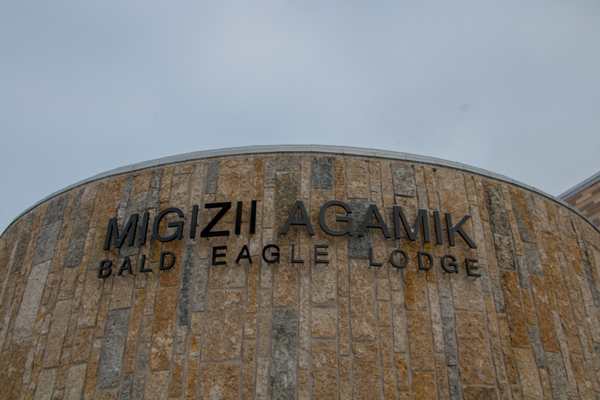The U of M has partnered with the Mastercard Foundation to implement a program to provide support to Indigenous students. The program, called EleV, aims to support members of Indigenous communities in Canada pursuing post-secondary education.
“Isn’t it exciting?” said Catherine Cook, vice-president (Indigenous) at the U of M. “It’s kind of a dream come true almost.”
There are four key objectives that the U of M is pursuing through the EleV program.
“The first one is to increase access to post-secondary education in places where Indigenous students call home,” Cook said.
“So those programs, such as the learning hubs, would be co-designed with the community.”
The remote learning hubs were implemented by the Manitoba First Nations Education Resource Centre to address the changes in education during the COVID-19 pandemic.
“The Interlake reserves tribal council […] approached us asking for our support in establishing a training centre,” said Cook.
“After a discussion with them, we supported an application for them, as well as an application internally to the university, to fund the [remote learning hubs].”
The remote learning hubs give post-secondary students from the Interlake region the opportunity to have reliable access to the internet to attend remote lectures from whichever university they are attending. This will also allow individuals to have reliable access to computers, training opportunities and counselling services.
“We don’t have a cookie-cutter template for these learning hubs,” said Cook.
“They will vary depending on the location, depending on the culture of the area and the communities involved.”
Enhancing and innovating supports for students is another way Cook hopes Indigenous student success will be increased.
Examples of supports include the partnership between the Seven Oaks School Division and Wayfinders as well as the expansion of the Neechiwaken Indigenous peer mentor program.
“These are programs that were designed in the urban environment but could be delivered beyond the urban environment as well,” said Cook.
The partnership’s final objective is to improve graduate outcomes for Indigenous students and to improve access to employment and entrepreneurship.
“We have a system where it’s been traditionally quite challenging for Indigenous people to enter the workforce in some of these fields,” Cook said. “We’re hopeful that this partnership will support that.”
“We’ve started with some of the outreach to students and to communities,” Cook said. “The information is there but it will continue to evolve.”
Communication will be ongoing as the program evolves, more remote learning hubs open and as different programs enhance and develop. At the U of M, students will be able to learn more about the program through the Indigenous Student Centre.


